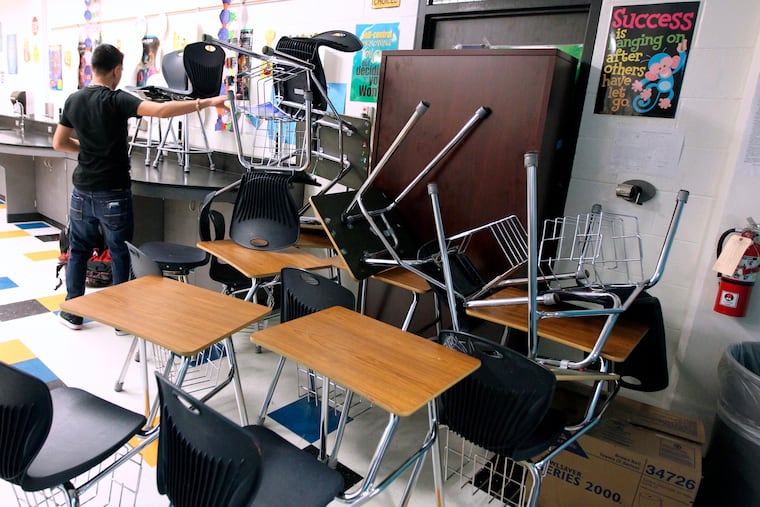Terrifying reality: How parents can help kids through active shooter drills
Fire drills are commonplace and are mandated in Pennsylvania, as are school bus emergency evacuation drills. But, with new legislation on the table in Pa., schools may be required to conduct other safety drills, including lockdowns.

Picturing your children at school huddled against a wall with their peers trying to be completely quiet is a dreadful vision for all parents – even if this is just a drill. Active shooter (or lockdown) drills are becoming more commonplace in schools as school shootings have garnered more attention in recent years. Even though schools are still the safest place for children.
A recent Washington Post analysis found that over 4.1 million students endured at least one lockdown drill in the 2017-2018 school year and The Atlantic states that 95 percent of schools conducted drills the year before. Fire drills are commonplace and are mandated in Pennsylvania, as are school bus emergency evacuation drills. Students have done them so often, they don’t think twice about them. But, with new legislation on the table in Pa. (HB No. 124), schools may be required to conduct other safety drills, including lockdowns. It is important that parents be aware of and understand the drills so they can talk to their children and help them through potential fear. The better prepared your child is, the less likely these drills will have a negative impact.
First, communicate with your child’s school to ensure you are informed about when drills will occur and how they will be conducted. Lockdown drills never need to include real sounds of gunfire, fake blood, or any scenes that could potentially traumatize a child. If you have concerns or want to provide input, volunteer to sit on a parent advisory committee. If there isn’t one at your child’s school, volunteer to start one.
How can parents help their kids?
Stay calm: If you model a calm attitude, your child will remain calm too.
Reassure them: Let your child know that these drills, just like fire drills, are for practice and can help keep them safe.
Make time to talk: Explain the drill to your child and talk them through each step, what to expect, how to respond, and why. Encourage them to ask questions. Ask them how they are feeling and assure them they are safe.
Remind them: Make sure they remember that today is drill day.
Debrief: Talk to your child after the drill. Ask questions. Explore any strong feelings or any adverse reactions they may have.
Know your child: If your child suffers from trauma, depression or anxiety, take extra care to talk to them and spend time with them. Contact your child’s school counselor if needed.
Observe them: Watch your child for any signs they may be having an adverse reaction, such as trouble eating or sleeping, withdrawing, or complaining of stomach/headaches.
Remind your child (and yourself!) that schools are safe. With the attention school violence receives, it does not always feel that way.
Terri A. Erbacher, PhD, is a school psychologist and clinical associate professor of psychology at Philadelphia College of Osteopathic Medicine. She is the author of the text Suicide in Schools: A Practitioner’s Guide to Multi-level Prevention, Assessment, Intervention, and Postvention.